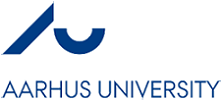Science Studies

Winter intake start date
2026-02-01
Winter intake deadline
2024-10-10
Introduction
Science and technology form part of our day-to-day lives wherever we are, and we constantly have to make decisions drawing on scientific and technological knowledge. Natural scientists tell us the significance of C02 in relation to climate change, and when we have to decide whether to reduce C02 emissions, we need to understand what sort of knowledge we have and on what it is based. The MSc in Science Studies provides you with insight into how scientific discoveries and knowledge have affected our lives and our societies. You learn to place scientific knowledge within historical, philosophical and social perspective, and you work comprehensively with the many challenges and opportunities that science provides.
Science, culture and society
The MSc in Science Studies is open to students with a BSc degree in science and an interest in gaining a wider perspective on how the natural sciences have developed in their interaction with society and contemporary culture. The programme includes the following themes supplementing students’ basic studies in science: history and philosophy of science; science, technology and innovation; science and society; and science and communication.
As a student in science studies, you will learn to understand the social and philosophical implications of science, the forces driving technological change, and contemporary developments within research and public understanding of science. Knowledge of the development of science and the ability to analyse science in a cultural and societal context can be useful in many different situations. For example, graduates may choose to work with communicating science and its challenges and opportunities to the general public through the media. Their knowledge of the interaction between the natural sciences, technology and society can be applied in public administration, the business community and in many different organisations. With a BSc degree in science and the broad perspective provided by the MSc in Science Studies, graduates are well prepared to enter into multidisciplinary collaboration with colleagues in many different fields. The MSc programme also qualifies graduates for a research career in science studies.
An intimate study enviroment
The MSc in Science Studies programme is taught in the framework of a small centre where students benefit from an international, yet informal, down-to-earth atmosphere between staff and students. As an MSc student, you will have excellent opportunities for engaging in projects related to current research and/or practical content, and you will have the option to specialise in many different subjects.
Na studia magisterskie mogą kandydować wszyscy, którzy ukończyli studia licencjackie lub inżynierskie (studia I stopnia), studia magisterskie lub studiują na ostatnim roku studiów I-stopnia. Studia, które planujesz powinny mieć zbliżony profil do tych obecnych lub ukończonych, ponieważ w procesie rekrutacji kluczowa jest ich zgodność programowa.
Wykaz punktów ECTS – osoby, które są jeszcze w trakcie studiów, muszą załączyć wypis punktów ECTS, w którym będzie wykazane, jakie przedmioty były realizowane na studiach oraz ile punktów za nie otrzymano.
Dyplom ukończenia studiów licencjackich lub inżynierskich – jeśli jesteś absolwentem wyższej uczelni, nie potrzebujesz wypisu, wystarczy załączyć dyplom ukończenia studiów wraz z suplementem (w języku angielskim lub oryginał z tłumaczeniem)
Course description - należy przygotować dokument, zbierający cały sylabus ze studiów licencjackich. Takie sylabusy najczęściej są do pobrania na stronie uniwersytetu. Należy je przetłumaczyć na język angielski (można samodzielnie) i złączyć w jeden dokument. Warto też zapytać w dziekanacie uczelni, czy nie dysponują wersją angielską.
Oficjalna skala oceniania Twojej uczelni - możesz dostać taki dokument w dziekanacie Twojej uczelni lub skonstruować samodzielnie. W obu przypadkach dokument powinien zawierać pieczątkę dziekanatu.
Spełnienie wymagań w zakresie języka angielskiego można udokumentować w jeden z następujących sposobów:
IELTS – 6.5
TOEFL – 83 (Aarhus University TOEFL kod - 8935)
Uwaga: wymagania językowe mogą ulec zmianie. Przed wysłaniem aplikacji upewnij się jakie są wymagania językowe na konkretny kierunek bezpośrednio na stronie uczelni.
W przypadku zdawania certyfikatu IELTs upewnij się, czy uczelnia oprócz wymagań oceny końcowej nie ma również wymagań odnośnie ocen cząstkowych.
You can be admitted to the master's programme if the university assesses that your education has a level, scope, and content that corresponds to the academic requirements specified below.
| You must have one of the following subject areas: | Number of ECTS |
Natural sciences 90 ECTS or Science studies 60 ECTS Natural sciences 90 ECTS | 90 |
